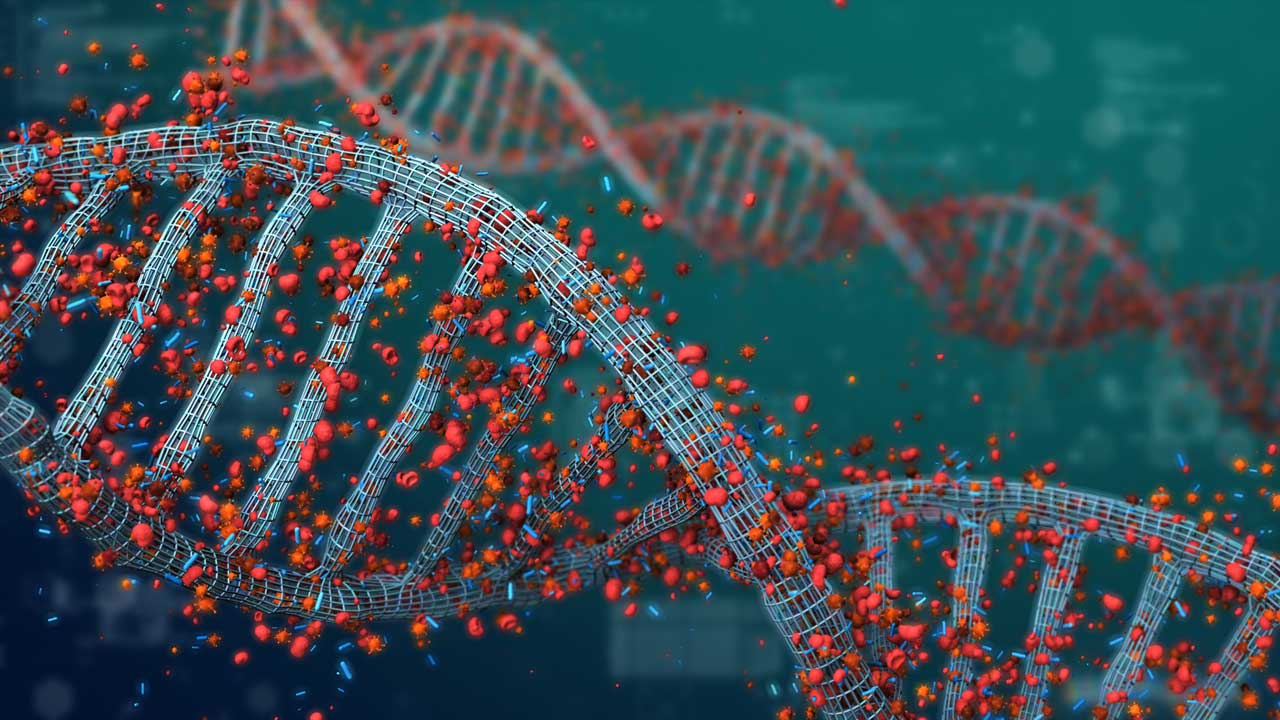
The successful transition of peptide production from laboratory scale to industrial manufacturing represents one of the most complex and critical phases in pharmaceutical development, requiring specialized expertise in process optimization, quality control, and regulatory compliance. This scale-up journey involves navigating numerous technical, economic, and regulatory challenges while maintaining the stringent quality standards essential for therapeutic applications.
Scaling peptide synthesis from R&D to manufacturing is more than just running a bigger batch. At Adesis, our expertise in peptide production scale-up has been proven through numerous successful transitions that have brought innovative peptide therapeutics from discovery benches to patients worldwide.
Understanding Scale-Up Challenges
Peptide production scale-up presents unique challenges that distinguish it from traditional small-molecule pharmaceutical manufacturing. The complexity of peptide synthesis, which involves multiple chemical transformations and purification steps, creates numerous opportunities for process variations that can impact the final product quality and yield. Understanding these challenges is essential for developing robust scaling strategies that ensure consistent product quality across all production scales.
The most significant challenge in scaling up peptide production involves maintaining reaction efficiency and product purity as batch sizes increase. Laboratory-scale synthesis typically benefits from rapid mixing, precise temperature control, and the ability to respond immediately to process variations. Industrial-scale production must achieve comparable results using larger reaction vessels with different mixing characteristics, longer heat transfer times, and inherent delays in process monitoring and adjustment.
Purification challenges become increasingly complex at larger scales, as impurity profiles may change with scale due to altered reaction kinetics and different residence times. Traditional laboratory purification methods may not be economically viable at commercial scales, requiring the development of alternative purification strategies that maintain product quality while achieving acceptable process economics.
Quality Maintenance Across Scales
Maintaining consistent peptide quality throughout scale-up requires a comprehensive understanding of how process parameters affect product attributes. Critical quality attributes, including purity, identity, potency, and impurity profiles, must remain within acceptable limits despite fundamental changes in equipment and process conditions.
The development of robust analytical methods capable of detecting and quantifying quality variations is essential for successful scale-up. These methods must be validated across all production scales to ensure consistent quality assessment and regulatory compliance. Our analytical chemistry capabilities encompass comprehensive peptide characterization methods that support quality maintenance throughout the scaling process.
Process analytical technology (PAT) implementation becomes increasingly important at larger scales, enabling real-time monitoring of critical process parameters and immediate response to process variations. This technology bridges the gap between laboratory-scale manual control and industrial-scale automated operations while maintaining the quality oversight essential for pharmaceutical production.
Process Development for Scale-Up
Successful peptide scale-up requires systematic process development that addresses the fundamental differences between laboratory and industrial production environments. This development process involves a comprehensive evaluation of synthesis parameters, optimization of reaction conditions for larger-scale equipment, and validation of process robustness under commercial manufacturing conditions.
Process development begins with thorough characterization of laboratory-scale synthesis conditions and identification of critical process parameters that affect product quality and yield. This analysis provides the foundation for developing scaled processes that maintain essential quality attributes while adapting to the constraints and opportunities presented by larger-scale equipment.
The optimization process must consider factors unique to industrial production, including extended reaction times, different mixing patterns, altered heat transfer characteristics, and the need for process automation that reduces manual intervention. Our process chemistry expertise encompasses comprehensive process development capabilities that address these scaling challenges while ensuring regulatory compliance requirements are met.
Synthesis Optimization and Yield Enhancement
Peptide synthesis optimization for industrial scale involves systematic evaluation of reaction parameters, including reagent concentrations, reaction times, temperature profiles, and mixing conditions. Each parameter must be optimized within the constraints of available equipment while maintaining product quality and maximizing yield.
Yield enhancement strategies become particularly important at commercial scales where raw material costs represent a significant portion of total production costs. Small improvements in coupling efficiency or reduction in side product formation can translate to substantial economic benefits at commercial volumes.
The development of robust synthesis protocols requires extensive experimentation to identify process conditions that consistently deliver acceptable results despite normal process variations. This robustness is achieved through the design of experiments approach, which systematically evaluates the impact of process variables on product quality and yield. According to research published in Organic Process Research & Development, systematic process optimization can improve peptide yields by 15-30% while reducing impurity formation.
Purification Strategy Development
The development of purification strategies for scaled peptide production necessitates a fundamental reconsideration of laboratory methods to address the economic and technical constraints of industrial production. Traditional preparative HPLC methods that work well at laboratory scale become prohibitively expensive at commercial volumes, necessitating the development of alternative approaches.
Industrial purification strategies often employ multi-step approaches that combine different separation mechanisms to achieve the required purity levels cost-effectively. These strategies may include crystallization, extraction, precipitation, and chromatography steps optimized for large-scale operation and economic viability.
The selection and optimization of purification methods must consider factors including scalability, economic efficiency, environmental impact, and regulatory acceptability. Our comprehensive capabilities include the development of scalable purification processes that meet pharmaceutical quality standards while achieving commercial viability.
Manufacturing Infrastructure Requirements
Industrial peptide production requires specialized infrastructure that addresses the unique requirements of peptide synthesis, purification, and quality control. This infrastructure encompasses reaction equipment, purification systems, analytical laboratories, and support facilities that collectively enable efficient and compliant peptide manufacturing.
Reaction equipment for peptide synthesis must accommodate the specific requirements of peptide chemistry, including corrosion resistance, temperature control, efficient mixing, and the ability to handle multiple solvents and reagents. The equipment must also be designed for easy cleaning and validation to prevent cross-contamination between different peptide products.
Purification infrastructure represents one of the most significant investments in peptide manufacturing facilities, as these systems must handle large volumes while achieving pharmaceutical-grade purity. The design of purification systems must strike a balance between throughput requirements and quality specifications while maintaining economic viability.
Equipment and Facility Considerations
The selection of manufacturing equipment for peptide production requires careful consideration of process requirements, quality standards, and economic factors. Reaction vessels must provide adequate mixing, temperature control, and monitoring capabilities while being compatible with peptide synthesis chemistry.
Automated synthesis equipment becomes increasingly important at larger scales, providing consistency and reproducibility that manual operations cannot achieve. These systems must be validated for pharmaceutical production and capable of meeting current Good Manufacturing Practice (cGMP) requirements.
Facility design must accommodate the unique requirements of peptide manufacturing including controlled environments, specialized waste handling, and comprehensive quality control laboratories. Our 100,000 square foot facilities exemplify the infrastructure required for commercial peptide production, combining manufacturing capabilities with comprehensive analytical and quality control systems.
Regulatory and Compliance Requirements
Commercial peptide production must comply with extensive regulatory requirements including environmental regulations and safety requirements. These compliance requirements have a significant impact on facility design, equipment selection, and operational procedures.
Documentation requirements for commercial peptide production are extensive, encompassing process validation, equipment qualification, analytical method validation, and comprehensive batch records. The development of compliant documentation systems requires early planning and integration with manufacturing operations.
Our ISO 9001:2015 certification demonstrates our commitment to quality management systems that support regulatory compliance throughout all aspects of peptide production. This certification ensures that our manufacturing operations meet the international quality standards required for pharmaceutical production.
Economic Considerations in Peptide Scale-Up
The economics of peptide scale-up involve complex interactions between process efficiency, equipment utilization, raw material costs, and quality requirements. Understanding these economic factors is essential for developing commercially viable peptide production processes that can support successful product commercialization.
Raw material costs typically represent the largest component of peptide production costs, making process yield and efficiency critical factors in commercial viability. Small improvements in synthesis efficiency can translate to significant cost reductions at commercial scales, making process optimization a high-priority investment area.
Equipment utilization and facility overhead costs become increasingly important at larger scales, requiring careful optimization of production schedules and batch sizes to minimize unit costs. The development of flexible manufacturing approaches that can accommodate multiple products and varying demand levels provides additional economic advantages.
Cost Optimization Strategies
Cost optimization in peptide production requires a systematic analysis of all cost components, including raw materials, labor, utilities, facility overhead, and quality control. This analysis identifies opportunities for cost reduction while maintaining product quality and regulatory compliance.
Process intensification strategies can reduce equipment requirements and facility costs by increasing throughput and efficiency. These strategies may include continuous processing, improved reaction kinetics, and enhanced separation efficiency, collectively reducing production costs.
The development of robust processes that consistently meet quality specifications reduces quality control costs and minimizes the risk of batch failures that can significantly impact production economics. Our leadership team’s extensive experience in commercial peptide production ensures that cost optimization efforts maintain the quality standards essential for pharmaceutical applications.
Adesis’s Scale-Up Capabilities
At Adesis, our peptide production scale-up capabilities represent the culmination of decades of experience in pharmaceutical manufacturing combined with state-of-the-art facilities and equipment. Our comprehensive approach to scale-up encompasses process development, equipment design, quality systems, and regulatory compliance that collectively enable successful transitions from laboratory to commercial production.
Our facilities include dedicated areas for peptide synthesis, purification, and analytical testing that support production volumes. This scalability is achieved through flexible equipment design and modular facility layouts that can accommodate varying production requirements while maintaining consistent quality standards.
The integration of our scale-up capabilities with comprehensive analytical and quality control systems ensures that scaled processes maintain the product quality and regulatory compliance essential for pharmaceutical applications. Our experience in successful scale-up projects provides confidence that peptide development programs can transition seamlessly from research to commercial production.
Scale Your Peptide Production with Confidence
The successful scaling of peptide production from laboratory to industrial volumes requires specialized expertise, comprehensive facilities, and systematic approaches that address the unique challenges of peptide manufacturing. At Adesis, we offer a comprehensive range of capabilities necessary for successful peptide scale-up, from initial process development to commercial manufacturing.
Contact our peptide production specialists today to leverage our scale-up expertise and world-class facilities to accelerate your peptide development timeline while ensuring the quality and regulatory compliance essential for commercial success.


